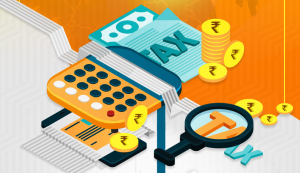As GST is going to roll out on the very first day of July 2017, every business holder has to file GST returns on a monthly basis as part of GST compliance. A GST return is a document that will be filed by a taxpayer for various returns, including three monthly returns and an annual return. The GST return filing needs to be done online, as paper returns will not be acceptable under GST regime. To make you informed about the various types of GST returns and due dates that need to be filled by all taxpayers in GST regime, here is a blog post. Take a look.
Types of GST Returns and Due Dates
For Registered Taxable Person
- GSTR-1 – Outward supplies of goods and services – by 10th of the next month
- GSTR-2 – Inward supplies of taxable goods and services – by 15th of the next month
- GSTR-3 – Monthly return – by 20th of the next month
- GSTR-9 – Annual return – by 31st December of next financial year
For Non-Resident Taxable Person
- GSTR-5 – Return for Non-Resident Foreign Taxpayer – by 20th of the next month
For Composition Supplier
- GSTR-4 – Quarterly return for composite taxable person – by 18th of the next month
For Input Service Distributor
- GSTR-6 – Return for Input Service Distributor – by 15th of the next month
For Tax Deductor
- GSTR-7 – Return for tax deducted at source – by 10th of the next month
For E-commerce Operator
- GSTR-8 – Return for e-commerce operator – by 10th of the next month

Monthly GST Return Filing
Under the new taxation system, it would be mandatory for taxpayers to file GSTR-1, GSTR-2, and GSTR-3 (monthly returns). Taxpayers, who have registered multiple time within a state, they are expected to file GSTR-1, GSTR-2, and GSTR-3 for each GST registration separately. Taxpayers can only file these monthly returns online.
Annual GST Return Filing
Each taxpayer, who owns a business has to file an annual return that comes under GSTR-9. This return needs to file by 31st December of next financial year.
GST Filing and Composite Taxpayer
Under GST regime, composite taxpayers need to file GSTR-4 quarterly. The composite tax is a flat amount, which a business will pay as per the turnover in a specific period. Those, who are eligible for the composite scheme can file monthly returns by claiming input tax credits on the purchases. All regular taxpayers will file for annual return (GSTR-8), based on financial records. GST will only be a single tax, which will be good for all the businesses.
The Bottom Line
Filing a GST return is mandatory for every taxpayer. All the above-mentioned returns need to be filed online only through a common portal by GSTN; a non-government company, supported by the Central and State Governments. However, after the implementation of GST compliance, people are expecting to get a relief from the overall tax burden and better economic growth of the nation.








